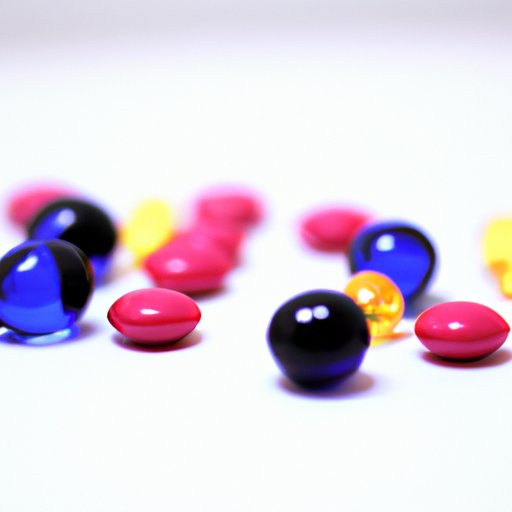
Introduction
It’s a common complaint: taking medicine is no fun because it tastes bad. While some people might be able to swallow a pill or two with ease, others will find that the bitterness of some medications makes it hard to take them. In this article, we’ll explore the science behind why medicine tastes so bad, the challenges of administering it to picky eaters, and potential solutions to this problem.
Section 1: Exploring the Science Behind the Bitterness in Medicine
So, what makes medicine taste so bitter? It all comes down to the chemical compounds that make up the medicine. Chemicals such as alkaloids, flavonoids, and glycosides, which are commonly found in medicinal plants, are responsible for the bitterness of many medications. These chemicals help the plant to ward off predators but do not always taste very good to humans.
Additionally, some people are more sensitive to bitter tastes than others. This is due to a genetic variation in taste perception, which is present in around 25% of the population. Those who have this genetic variation, known as “super tasters,” have more taste buds, making them more sensitive to bitter flavors.
Examples of commonly bitter medicines include antibiotics like amoxicillin, antihistamines like loratadine, and cough syrups containing guaifenesin.
Section 2: How Do We Improve Medicine Taste for Children?
Administering medicine to children can be particularly challenging, as many children are picky eaters and may refuse to take medicine that tastes bad. However, there are several solutions that parents and healthcare providers can try. For example, some pharmacies can flavor medicine syrups, and adding a small amount of flavor like vanilla or cherry can make a big difference in taste. Additionally, using a straw can help bypass the taste buds on the tongue and make it easier to swallow the medicine.
Section 3: The Evolution of Medicine: From Herbal Remedies to Unpalatable Pills
The history of medicine administration is a long and fascinating one. Humans have been using herbal remedies to treat ailments for thousands of years, with many of these remedies still being used today. However, as medicine became more standardized and mass-produced, it began to take on new forms, such as pills and capsules. Unfortunately, many of these new forms did not taste very good, causing some patients to struggle to take them.
The bitter taste of some medications is unavoidable due to the chemical compounds that make up the medicine. However, some companies are working to mask the taste of these compounds, creating new technologies and delivery methods that minimize the bitterness. For example, some medications are now available as orally disintegrating tablets, which dissolve in the mouth and bypass the taste buds on the tongue.
Section 4: The Psychological Impact of Bad-tasting Medicine
Medicine taste can have a significant psychological impact on patients, particularly children. The unpleasant taste can lead to negative associations with medicine, making it more challenging to persuade them to take medication in the future. This can pose a significant problem for healthcare providers, as medication non-adherence can have serious health consequences.
To address this issue, some pharmaceutical companies are using innovative methods to make medicine more palatable. For example, one company has created a medication that tastes like strawberries to minimize the negative association with taking medicine.
Section 5: Cooking Up a Solution: How Chefs are Making Medicine More Palatable
Another solution to the problem of bitter-tasting medicine is the collaboration between chefs and healthcare providers. By combining medicine with food, chefs are making medicine taste better and sometimes even creating new recipes that incorporate medications. This approach not only helps patients, but it also helps to break down the stigma around taking medication by making it a more enjoyable experience.
This practice has been helpful for patients who have difficulty swallowing pills or those who have taken medication for long periods. There have been examples of using chocolate to mask the bitter taste of a particular medication or creating gummy bear versions of medication – the possibilities are endless.
Section 6: Overcoming the Problem of Bad-tasting Medicine
For patients struggling with the taste of their medication, there are several practical tips and tricks that can help. Crushing pills and mixing them with food or beverages can make them easier to swallow. You can also take medication with a spoonful of honey, which will help to mask the taste. Another trick is to avoid smelling your medication, as the smell can make the taste seem worse. In general, try different approaches to find the most effective way to take your medication.
Conclusion
Medicine taste is a common complaint, but it’s a challenge that can be overcome. By understanding the scientific reasons behind the bitterness, and by taking advantage of the solutions available, we can make the experience of taking medication more manageable for everyone. While medicine may not taste like candy, it’s essential to remember that its primary goal is to help us feel better and get back to doing the things we love.




